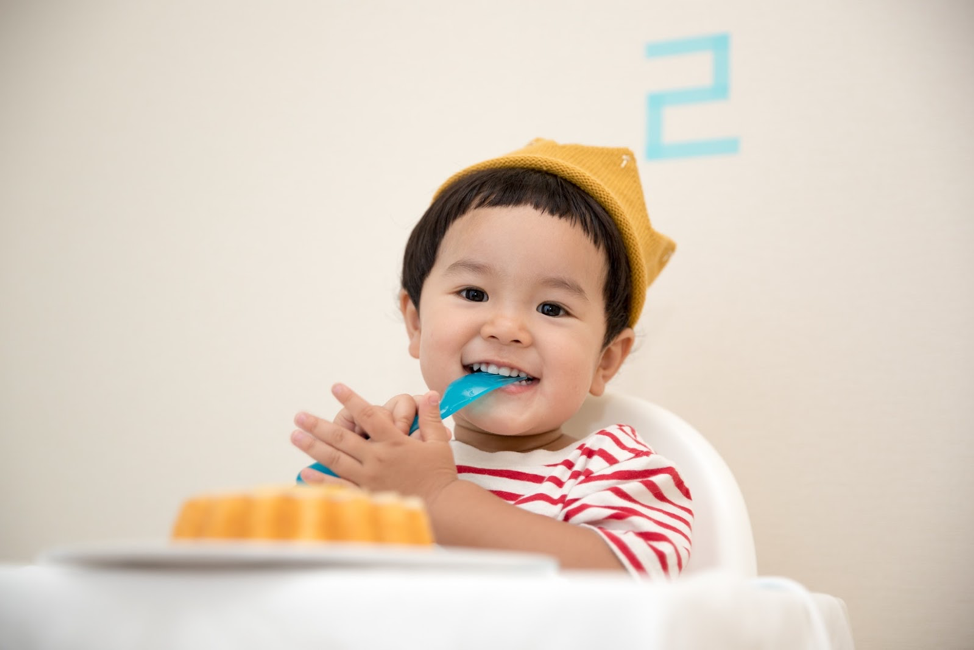There are a ton of great videos of children excitedly reacting to being able to hear for the first time after receiving cochlear implants. They laugh and smile and run towards the source of the first sound they hear. These videos are fun and uplifting to watch, but they can lead parents and guardians to expect these same reactions from their own children. But children respond in plenty of other ways. Some cry, some are startled or scared by that first sound. Some try to take the CI processor off, or cling to their family members for support. Other kids exhibit no response at all, leading parents to panic that the implant is not working.
All of these reactions are normal—including not having much of a reaction. Children without hearing loss begin to hear about twenty weeks before birth, giving their brains plenty of time to learn how to interpret and organize sound. As your own child goes through this process outside of the womb, surrounded by a world of sound that contradicts their understanding of the world up until this point, there is no “correct” response.
Beyond adjusting to the new sounds they can hear, children also face an adjustment period to the implants themselves. Especially as they grow older, children can develop a sense of “otherness” from their peers, most of whom do not have cochlear implants. This can lead to embarrassment or anxiety, causing some children to withdraw.
Here at Bliss Speech and Hearing Services, Inc., we’ve watched families go through this adjustment process, and we’ve put together some helpful tips for you if you’re embarking on this journey with your own family.
Explore Sound with Your Child
Part of adjusting to a cochlear implant is adjusting to sound. Your child will likely exhibit a world of new behaviors as they familiarize themselves with the sounds around them. They may bang objects and toys together, or otherwise experiment with the world around them to see what sounds they can create. They may gravitate towards toys and objects that make sound on their own. Some children imitate the voices of others. Join them in these explorations, banging objects together and playing with noisy toys. When they hear a sound, point to your ear to let them know you heard it too, and take them to the source of the sound. Talking is also key. Talk to them all the time, narrating your actions or your thoughts. This is all a part of the learning process for your child.
Help Your Child See the Cochlear Implant as a Part of Them
It will take a little while for your child to go through the entire day with their cochlear implant switched on. But even when it’s off, children may remove it, or it may fall out during play. Putting the processor back on will become a normal part of your day. We’ve had parents and guardians tell us stories of reconnecting it forty and fifty times throughout the course of the day. The key here is not to make a big deal out of this. Children love attention, and will do whatever they can to get it from their parents or guardians. For example, some toddlers will learn to make a choking noise because they like the response it elicits. It’s important to do what you can to avoid making removal of the processor a cause for such a reaction. Quickly putting it back on and then resuming what you were doing will help your child come to see the CI as a part of them.
Create a Routine for Bedtime
Sleep can be particularly challenging, as your child’s audio processor will most likely come off before bedtime. For a child adjusting to sound, suddenly being without it can be cause for confusion and anxiety. Bedtime is always a challenge with children, whether a cochlear implant is present or not. In all likelihood, you’ve developed a routine that helps get your child ready for bed; bath time, teeth brushing, and reading books happen in a precise order. You can work the removal of the processor into this routine, giving your child advance notice that it will soon be time for things to get quiet. Reassure your child that the processor will be there in the morning, and with it, their ability to hear. Putting it in a designated “safe spot” where they can see it, perhaps on the nightstand, is a great way to provide comfort.
Manage Your Own Reactions
Children are particularly astute at reading the emotions of those around them, especially their parents or guardians. Your own fears and anxieties have a way of making themselves known to your children. If you’re nervous, for example, that your child will not be able to hear in the middle of the night, they’re likely to feel anxious as well. Strategies that help your own sense of calm will help your child feel calm as well.
Speak with Others in Your Child’s Life
Take the time to talk with teachers, coaches, and others in your child’s life. Educate them about the cochlear implant and some of the challenges your child will likely be facing. It can be helpful to provide strategies for addressing your child’s cochlear implant with students or teammates.
Help Prepare Your Child to Answer Questions
It’s natural for children to be curious, and it’s almost a guarantee that your child will have questions asked of them by their peers. It’s tremendously helpful to speak with your child about how to answer these questions beforehand so they don’t feel “on the spot” in school or at practice.
Set Up Play Dates with Other Children Who Have Cochlear Implants
While it’s important to help provide your child with strategies to feel comfortable among kids without hearing challenges, it’s equally important to let them know that they are not alone. Making play dates with other children who have cochlear implants is a great way to help alleviate that sense of “otherness.” It can also provide your child with someone they can ask questions of and learn from.
It’s a great idea to implement some of these strategies before your child’s cochlear implant surgery. There will be a lot to adjust to, and the more you can prepare your child in advance, the easier the adjustment will be. Remember, there’s no “right” amount of time for this process. Some children adjust quickly, while others take more time. We urge you to be patient, and to listen to your child, acknowledging their feelings and anxieties.
Speech therapy for kids is an integral part of this adjustment. Here Bliss Speech and Hearing Services, Inc., our expert speech pathologists have helped dozens of children in and around Dallas, TX adjust to life with cochlear implants. We look forward to doing the same for your child.



